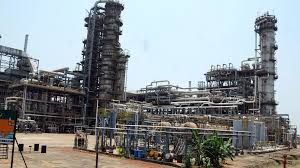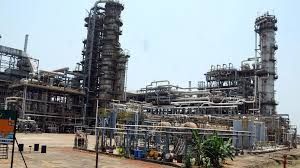
Karnataka sugar mills have successfully produced ethanol from sugarcane. India has mastered blending, ensuring engines run lighter and smoother, up to 20%.
A view of MRPL unit in Mangalore. -Photo/Govindarajan Javali A view of Mangalore Chemicals and Fertilizers (MCF). Since 1992, India has transformed its petroleum refinery structure, producing fuels that meet global standards. Mangalore and its suburbs a...
Karnataka sugar mills have successfully produced ethanol from sugarcane. India has mastered blending, ensuring engines run lighter and smoother, up to 20%. Karnataka also hosts Strategic Petroleum Reserves, which ensure a minimum supply of crude to ...
The BPPR should be managed by a government legal entity within SEZ status. It would provide flexibility for international financing, forward trading, and storage. The domestic market has 30 crore consumers across the petroleum chain. Petroleum blend...
The Reserve Bank of India and the Forward Markets Commission could allow citizens to own petroleum product certificates—duty-free, tradable, and redeemable at petrol pumps. Taxes would be collected at exit gates of hubs. Investors could earn around 1...
The current appetite for public equity can enable bonds worth at least ₹1,80,000 crore to be mobilized, with inventory as collateral, making the reserve self-sustaining. Oil company Executive Directors will then manage 90 days of stock without losses...
All African nations—from Egypt to South Africa—can serve as investment zones for petroleum products. Distribution firms can use coupons. For example, a trucker may buy Diesel E20 at a discount, with delivery after 90 days.
In the short term, importing 1–2.5 million tonnes of ethanol per annum from Brazil, USA, and other nations that generate surpluses would help. Strategic storage practices should converge with commercial use near consumption and transport networks.



